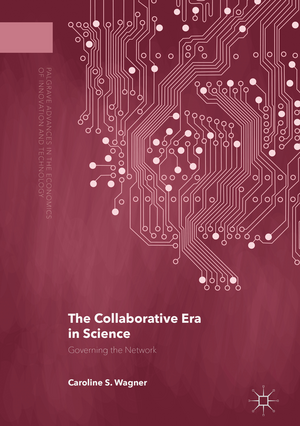The Collaborative Era in Science: Governing the Network: Palgrave Advances in the Economics of Innovation and Technology
Autor Caroline S. Wagneren Limba Engleză Hardback – 7 noi 2018
| Toate formatele și edițiile | Preț | Express |
|---|---|---|
| Paperback (1) | 522.10 lei 6-8 săpt. | |
| Springer International Publishing – 21 dec 2018 | 522.10 lei 6-8 săpt. | |
| Hardback (1) | 696.82 lei 6-8 săpt. | |
| Springer International Publishing – 7 noi 2018 | 696.82 lei 6-8 săpt. |
Preț: 696.82 lei
Preț vechi: 819.79 lei
-15% Nou
Puncte Express: 1045
Preț estimativ în valută:
133.35€ • 139.05$ • 110.83£
133.35€ • 139.05$ • 110.83£
Carte tipărită la comandă
Livrare economică 21 martie-04 aprilie
Preluare comenzi: 021 569.72.76
Specificații
ISBN-13: 9783319949857
ISBN-10: 3319949853
Pagini: 212
Ilustrații: XXV, 194 p. 4 illus.
Dimensiuni: 148 x 210 mm
Greutate: 0.42 kg
Ediția:1st ed. 2018
Editura: Springer International Publishing
Colecția Palgrave Macmillan
Seria Palgrave Advances in the Economics of Innovation and Technology
Locul publicării:Cham, Switzerland
ISBN-10: 3319949853
Pagini: 212
Ilustrații: XXV, 194 p. 4 illus.
Dimensiuni: 148 x 210 mm
Greutate: 0.42 kg
Ediția:1st ed. 2018
Editura: Springer International Publishing
Colecția Palgrave Macmillan
Seria Palgrave Advances in the Economics of Innovation and Technology
Locul publicării:Cham, Switzerland
Cuprins
1. Science in the Age of Knowledge Abundance.- 2. The Scale and Scope of Global Science.- 3. Levels and Patterns of Communication in the Global Network.- 4. It’s Who You Know (or Could Know) That Counts.- 5. The Global Network of Science Emerges.- 6. Openness in the Global Network.- 7. Nations Within the Global Network.- 8. Local Innovation and the Global Network.- 9. Governing Global Science.
Recenzii
“This book explores what that global network is, and Wagner makes suggestions for ways to improve knowledge gathering and diffusion on a global scale. Readers gain valuable insights about how public policy manages the growing and maturing global scientific enterprise, and how clusters and convergence contribute to forming networks of scientific collaboration around the world. Summing Up: Recommended. Graduate students, researchers, and professionals.” (J. Gelfand, Choice, Vol. 56 (11), July, 2019)
Notă biografică
Caroline S. Wagner is the Ambassador Milton A. and Roslyn Z. Wolf Chair in the John Glenn School of Public Affairs and an advisor to the Battelle Center for Science and Technology Policy at the Ohio State University, USA. Previously, she served as deputy to the director of the Science & Technology Policy Institute at the RAND Corporation. She is the editor of the journal Science and Public Policy, a Distinguished Fellow of the American Association for the Advancement of Science, and an elected member of the Council on Foreign Relations.
Textul de pe ultima copertă
In recent years a global network of science has emerged as a result of thousands of individual scientists seeking to collaborate with colleagues around the world, creating a network which rises above national systems. The globalization of science is part of the underlying shift in knowledge creation generally: the collaborative era in science. Over the past decade, the growth in the amount of knowledge and the speed at which it is available has created a fundamental shift—where data, information, and knowledge were once scarce resources, they are now abundantly available. Collaboration, openness, customer- or problem-focused research and development, altruism, and reciprocity are notable features of abundance, and they create challenges that economists have not yet studied. This book defines the collaborative era, describes how it came to be, reveals its internal dynamics, and demonstrates how real-world practitioners are changing to take advantage of it. Most importantly, the book lays out a guide for policymakers and entrepreneurs as they shift perspectives to take advantage of the collaborative era in order to create social and economic welfare.
Caracteristici
Argues that the global network of science has ushered in a new era of collaboration that is changing the playbook for science policy Relies on complexity theory and empirical data to describe the rise of the collaborative era and its internal dynamics Focuses on policy implications for a host of timely issues, ranging from the economic rise of China and global governance, to patent law, copyright, and open access






